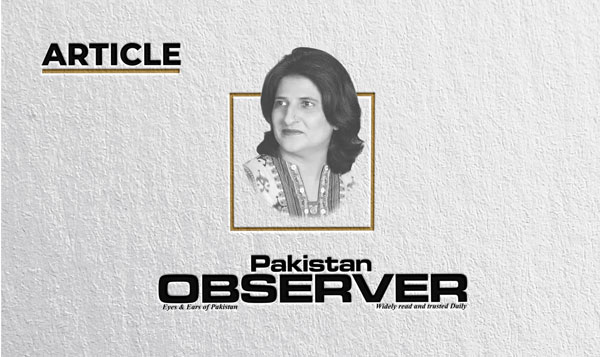IORA and SAARC
BANGLADESH is hosting a Ministerial meeting of the Indian Ocean Rim Association (IORA) on November 23-24. The IORA is a regional forum comprising 23 states bordering the Indian Ocean.
Australia, Bangladesh, Union of Comoros, France, India, Indonesia, Iran, Kenya, Madagascar, Malaysia, Maldives, Mauritius, Mozambique, Oman, Seychelles, Singapore, Somalia, South Africa, Sri Lanka, Tanzania, Thailand, United Arab Emirates and the Republic of Yemen are members.
If you see the list, you will find that China and Pakistan that are situated in the Rim but are two important countries that are not members of this Association.
I consider that regional associations like IORA can be useful for Pakistan because such initiatives help for creating common grounds for regional economic cooperation, formulate and implement projects for economic cooperation relating to trade facilitation and liberalization, promotion of foreign investment, scientific and technological exchanges, tourism, movement of natural persons and service providers on a non-discriminatory basis; and the development of infrastructure and human resources inter-alia poverty alleviation, promotion of maritime transport and related matters, cooperation in the fields of fisheries trade, research, and management, aquaculture, education and training, energy, IT, health and protection of the environment.
Poverty in South Asia has several reasons including inadequate resources for an exceptionally high population rate, administrative corruption, lower literacy rate, devastating effects of climate change, and inequality in the distribution of resources among the masses.
Nevertheless, one of the major reasons for poverty in the highest level of population density region is conflicts among neighbours that hamper free trade, free tourism, and free interaction among the population.
Pakistan and India are the major examples of unpleasant and tense relationships between the two neighbours.
Indo-Pak tensed relations are blamed for the failure of the South Asian Association for Regional Cooperation (SAARC) which was established on 8 December 1985.
One of the major objectives of SAARC includes working to explore all possibilities and avenues for trade liberalization, removing impediments to, and lower barriers towards, freer and enhanced flow of goods, services, investment, and technology within the region; to encouraging close interaction of trade and industry, academic institutions, scholars and the peoples of the Member States without any discrimination among Member States and without prejudice to obligations under other regional economic and trade co-operation arrangements and to strengthen co-operation and appreciate dialogue among Member States.
However, not a single objective of SAARC has been achieved but this redundant and dormant organization is here and thousands of bureaucrats in all member states are enjoying their government jobs in the name of SAARC.
I am of the view that South Asian countries can officially disband SAARC or merge it with the Indian Ocean Rim Association (IORA) because the majority of members are the same in these two organizations and their terms of reference and objectives are also quite similar.
Since the reach of IORA is larger than SAARC and India is not in a position to influence all the members as it does in SAARC therefore it can be more useful for Pakistan than a dead organization like SAARC.
I believe SAARC members should not be shy in accepting that the organization has totally failed and needs complete revamping or disbanding so its merger into IORA is not a bad idea indeed.
I strongly believe that South Asia can fight poverty if free trade is ensured among neighbouring countries.
We cannot resolve grave strategic issues among south Asian states but we can ensure free trade, exchange of expertise, and collective moves to minimize the impact of climate change and can reach a consensus that we have a shared future therefore we must work together to ensure a better future of our youth that is over 50 percent of the population of almost all countries of south Asia.
—The writer is a Prague-based author, columnist and foreign affairs expert who writes for national and international media.










